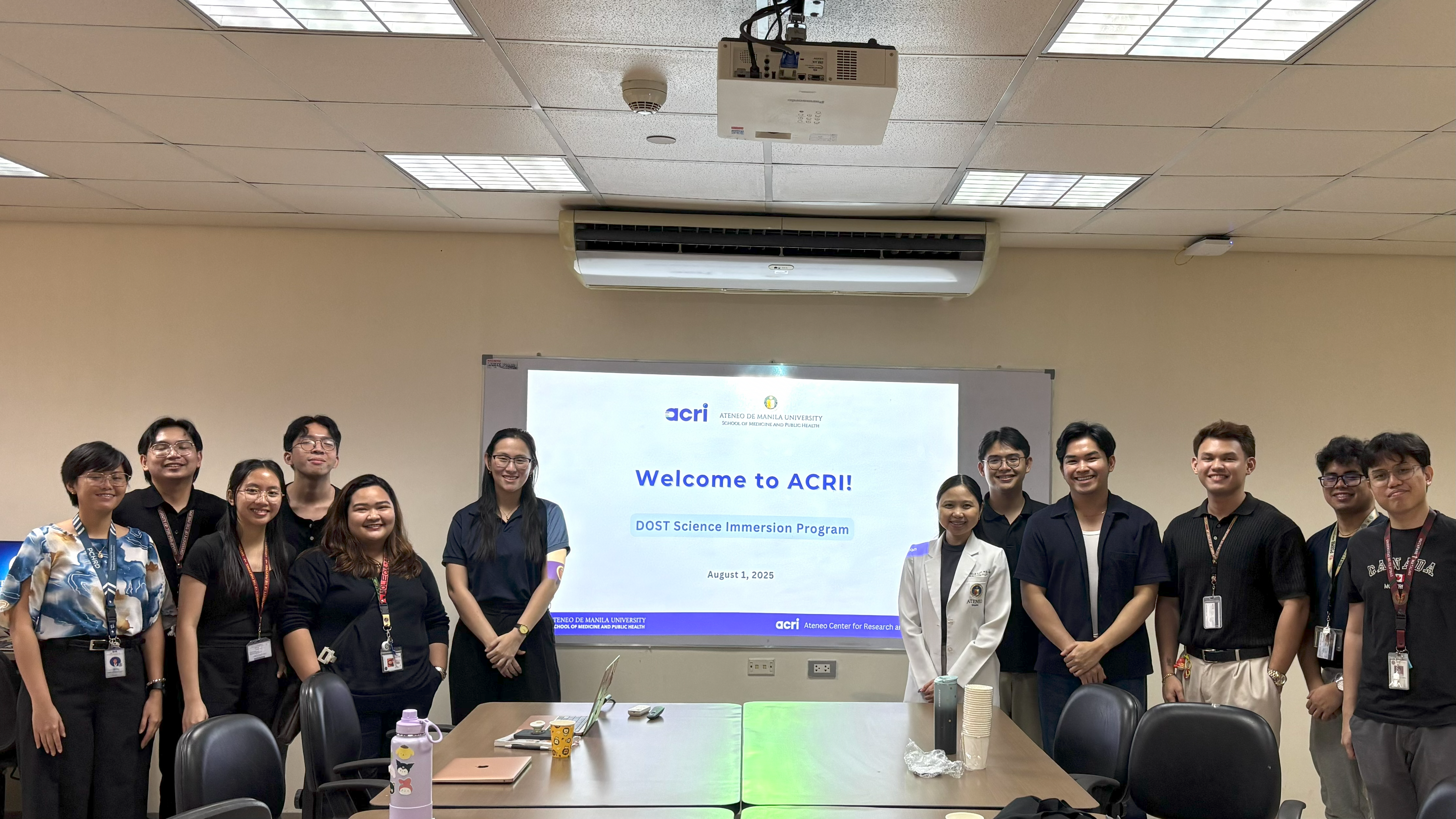
UP Manila MD-PhD Scholars Visit ACRI for Science Immersion Program
On August 1, 2025, the Ateneo School of Medicine and Public Health – Center for Research and Innovation (ACRI) welcomed MD-PhD scholars from the University of the Philippines Manila’s Molecular Medicine Program as part of their annual Science Immersion Program organized by the Department of Science and Technology – Philippine Council for Health Research and Development (DOST-PCHRD).
The Science Immersion Program is designed to broaden the horizons of its scholars by introducing them to a wide range of research and development (R&D) institutions across the country. More than a simple campus visit, the program allows future clinician-scientists to engage directly with researchers, scientists, and technical staff — providing firsthand exposure to the realities of working in scientific research. Through these interactions, the scholars gain deeper insights into how innovative ideas translate into tangible health solutions.
During their visit, the scholars were introduced to ACRI’s role as the dedicated research arm of ASMPH and its mission of advancing interdisciplinary and impactful research. They learned about ACRI’s five flagship programs and the institution’s diverse portfolio of past and ongoing initiatives in areas such as biotechnology, environmental health, health governance, mental health sciences, and ACRInnovations.
A highlight of the day was the tour of the newly established ACRI Laboratory, a Biosafety Level 2 (BSL-2) facility equipped for molecular biology and genomics research. Here, the scholars were introduced to cutting-edge equipment including a MinION Nanopore Sequencer for portable DNA/RNA sequencing, an RT-PCR system for gene expression and pathogen detection, a NanoDrop spectrophotometer for nucleic acid and protein quantification, and a Qubit fluorometer for sensitive DNA, RNA, and protein assays. These tools are essential for high-quality, high-impact research, and the visit provided the scholars with a glimpse of how they are used in actual research workflows.
Throughout the program, discussions naturally turned toward future opportunities for collaboration between ACRI and the Molecular Medicine Program. The visit not only showcased ACRI’s growing research capabilities but also underscored the importance of cross-institutional partnerships in building a stronger scientific community. By opening its doors to the next generation of researchers, ACRI reaffirms its commitment to fostering curiosity, collaboration, and innovation in health research.
-

Transforming Primary Healthcare in the Philippines: An Innovative Pilot Postgraduate Professional Development Program for Primary Physicians in the Province of Northern Samar (The “iPRIME” Project)
This project, funded by Newton Fund and the British Council, aimed to strengthen the training of the primary physician.
-

Identifying the Learning Needs of Primary Care Physicians in Remote Rural Communities Using an Ethnographic Approach
The Philippines currently has a fragmented primary care system with weak preventive and promotive aspects.
